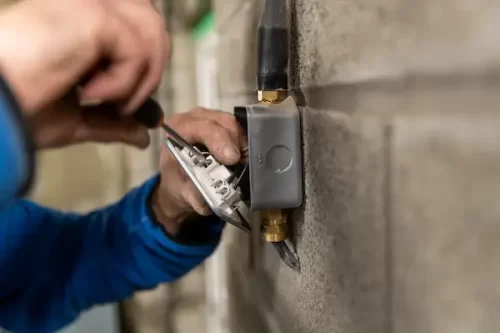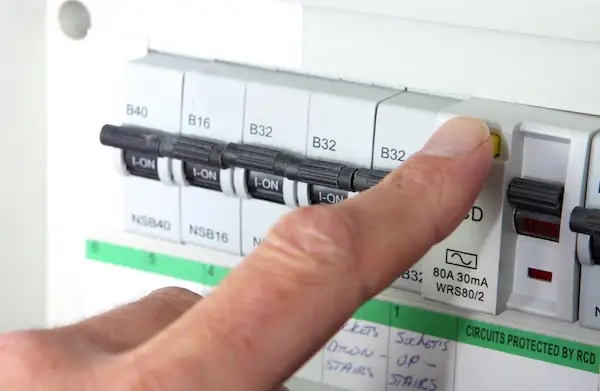
Considering launching your own electrician business? You’re in for a journey that demands diligence and dedication but is also potentially extremely rewarding.
We are going to explore the key steps involved in establishing your electrician business, from business model choices to securing necessary certifications and insurances. We’ll also delve into customer acquisition and the marketing of your services. If you’re prepared to leap into self-employment, continue reading.
Embarking on the journey to launch your own electrician business is a considerable step. There are myriad vital considerations, such as certifications, insurance, finding the right location, and marketing your business. With meticulous planning and unwavering commitment, it can be an immensely satisfying journey.
Let’s go through the key steps you need to take to establish your electrician business.
Choosing a Business Model for Your Electrician Company
One of the foremost tasks in setting up an electrician business and developing your business plan is deciding on your preferred business model.
A variety of options are available, including sole traders, partnerships, limited liability companies, and corporations registered with Companies House.
Each of these has its own pros and cons, so it’s crucial to conduct thorough research and opt for the model that aligns with your needs when crafting your business plan.
Securing the Necessary Certifications and Insurances in the Electrical Industry

Securing the necessary certifications and insurances is one of the most important steps when starting an electrician business.
Every business bears risks, but some industries are riskier than others. This holds true for businesses offering electrician services, with a myriad of potential liabilities.
In the UK, electricians need to hold various certifications and insurance policies to legally operate. These include public liability insurance, which covers damages or injuries caused by the electrical work, and professional indemnity insurance, which safeguards against any claims arising from professional negligence.
There are also several other types of insurance worth considering, which we will detail below. In addition, electricians must also obtain NICEIC registration, which allows them to carry out electrical installation work in the UK.
Certifications and Insurance
Here’s a brief overview of the key certifications and insurances you’ll need to secure:
NICEIC Registration
In the United Kingdom, all electricians must be registered with NICEIC to legally conduct electrical installation work. This ensures that electricians have the requisite training and experience to work safely with electrical systems. Moreover, NICEIC assessors regularly audit the work of registered electricians to ensure they uphold the highest standards. This certification affords peace of mind to both electricians and their clients, guaranteeing that the work will be carried out safely and accurately.
To work as an NICEIC registered engineer in the UK, electricians must first complete an electrical safety training course, typically offered by technical colleges or private training providers.
After completing the course, electricians must pass an NICEIC assessment before they can be officially registered. The NICEIC is the official UK body regulating electrical engineers and controlling their certification.
Electricians must also renew their registration annually to ensure their knowledge stays updated with the latest NICEIC guidelines.
By adhering to these steps, electricians can ensure they are legally qualified to work with electrical systems in the UK.
Employer’s Liability Insurance

Any business that employs staff needs to have employer’s liability insurance. This is especially pertinent for businesses offering electrician services, given that their employees often work in potentially hazardous environments.
Employer’s liability insurance protects businesses from claims made by employees who are injured or fall ill due to their work. Without this insurance, businesses could incur substantial financial costs if an employee opts for legal action. This insurance provides peace of mind for business owners, securing them against any potential claims.
For these reasons, it’s essential for all electrician businesses to have employer’s liability insurance in place.
Public Liability Insurance
As an electrician business owner in the UK, you must have public liability insurance. This insurance protects you from financial damages if someone is injured or their property is damaged as a result of your business operations. Without this coverage, you would be financially liable for any losses incurred by the injured party.
Moreover, public liability insurance can help cover legal fees if you are sued. While the cost of premiums is an additional expense, the peace of mind and financial protection offered by public liability insurance is vital for any business owner.
Here’s why UK businesses offering electrician services need public liability insurance:
- To safeguard against third-party lawsuits: If your work injures someone or damages their property, they could sue you for compensation. Public liability insurance can help cover the costs of these lawsuits, including any damages that may be awarded.
- To cover the cost of repairs: If your work damages someone else’s property, you’ll be responsible for repairing the damage. Public liability insurance can help cover these repair costs, ensuring that you are not out of pocket.
- To safeguard your business: Public liability insurance can help protect your business against financial loss if someone sues you. This insurance can help ensure your business continues to operate even if you face a costly lawsuit.
Thus, if you’re exploring ways to protect your business, public liability insurance should be one of your primary considerations.
Professional Indemnity Insurance
In the UK, all electrician businesses are required to have professional indemnity insurance. This insurance protects businesses from claims that may arise from their work.
Professional indemnity insurance can cover a wide range of potential risks, including negligence, breach of contract, and professional errors.
As an electrician business, you provide installation, repair, and maintenance of electrical systems. Therefore, it’s important to have professional indemnity insurance to protect your business from any legal liability arising from the provision of faulty workmanship or products.
This insurance will cover the costs of any damages awarded to a client as a result of substandard work or products. Additionally, professional indemnity insurance will also cover litigation costs and defence against any claims made by clients. So, it’s a crucial type of insurance for any electrician business.
Professional indemnity insurance provides the peace of mind that your business is shielded against any legal liabilities that may arise from your work. Some businesses may consider this insurance an unnecessary expense, but in truth, it can be vital for protecting your business from financial ruin.
If a customer suffers damages as a result of your work, you can rely on your professional indemnity insurance to cover the cost of any settlements or judgments awarded.
Without this protection, your electrician business could potentially be forced to cease operations.
Other Insurances to Consider
Depending on the type of work your electrician business will undertake, there are several other types of insurance you may want to consider.
For example, if you plan to work on a contractor’s property development or building site, some of your insurance needs may differ from those of an electrician doing domestic work for residential clients.
Some of the other types of insurance cover to consider, depending on your circumstances, are:
- Contract performance bonds
- Product guarantee insurance
- Directors and officers liability cover
- Legal expenses and employment law protection
- Motor fleet insurance
If you’d like some help navigating the types of insurances your business will need, please get in touch with us at Construction Insure. We have the experience and understanding of the electrical industry, as well as a wide range of contacts within it, to offer you the advice you need and broker the best insurance deals for you.
Although it may seem like a lot of paperwork, securing the necessary certifications and insurances is critical for any electrician business. Without these, you could face serious legal consequences.
Having these elements in place before you start marketing your business will help you avoid any problems down the line.
Marketing Your Electrician Business
Once you have your business certifications and insurance in place, it’s time to start finding customers.
When you’re first starting out, marketing your electrician business can seem like a daunting task. But with a bit of creativity and effort, you can spread the word and start attracting customers.
One of the simplest and most effective ways to market your business as a self-employed electrician is through word-of-mouth. Let your friends, family, and neighbours know that you’re open for business, and ask them to spread the word. Doing a good job also increases your chances of getting repeat business.
You can distribute flyers in high-traffic areas or take out a small ad in the local paper.
One of the best ways to market your new electrician business is by networking with other local businesses. Attend trade shows and events, join local chambers of commerce, and engage with community organisations.
However, if you want to reach a wider audience of potential customers, consider creating a website or social media page for your business. Nowadays, most people begin their search for a service online. Ensuring your small business appears on Google when people search for local electricians will give you a head start.
Make sure to include your contact details and services offered, and post regular updates to keep people interested.
With a bit of effort, you’ll be well on your way to success as an electrician business owner.
If you’re ready to start your own electrician business, follow the tips in this guide to get started on the right foot. With a bit of hard work and dedication, you can run a successful electrician business in no time.

